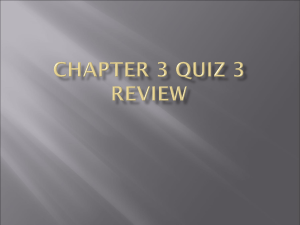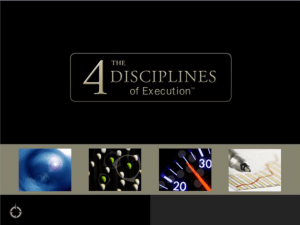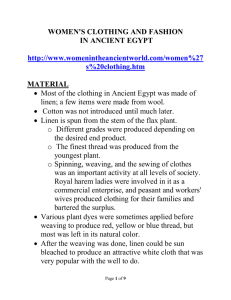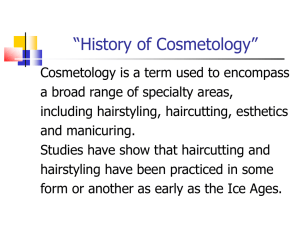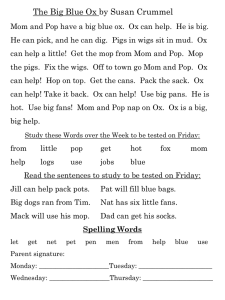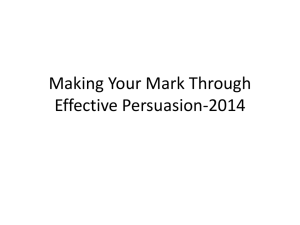WiGS Retrospective - Women in German Studies
advertisement
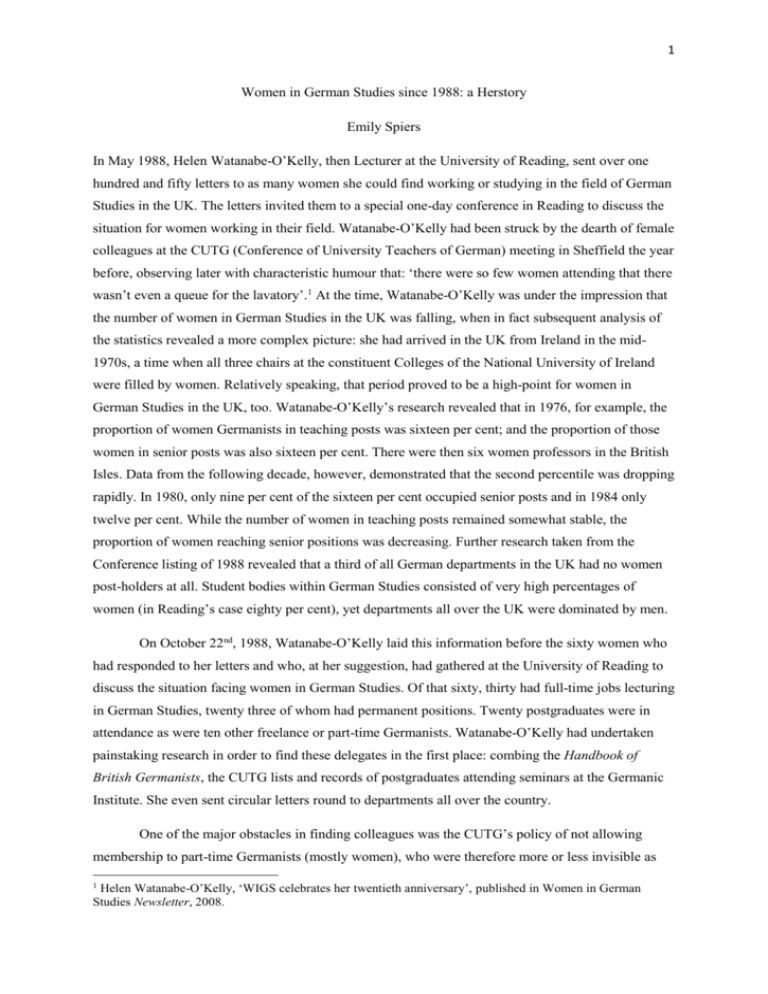
1 Women in German Studies since 1988: a Herstory Emily Spiers In May 1988, Helen Watanabe-O’Kelly, then Lecturer at the University of Reading, sent over one hundred and fifty letters to as many women she could find working or studying in the field of German Studies in the UK. The letters invited them to a special one-day conference in Reading to discuss the situation for women working in their field. Watanabe-O’Kelly had been struck by the dearth of female colleagues at the CUTG (Conference of University Teachers of German) meeting in Sheffield the year before, observing later with characteristic humour that: ‘there were so few women attending that there wasn’t even a queue for the lavatory’.1 At the time, Watanabe-O’Kelly was under the impression that the number of women in German Studies in the UK was falling, when in fact subsequent analysis of the statistics revealed a more complex picture: she had arrived in the UK from Ireland in the mid1970s, a time when all three chairs at the constituent Colleges of the National University of Ireland were filled by women. Relatively speaking, that period proved to be a high-point for women in German Studies in the UK, too. Watanabe-O’Kelly’s research revealed that in 1976, for example, the proportion of women Germanists in teaching posts was sixteen per cent; and the proportion of those women in senior posts was also sixteen per cent. There were then six women professors in the British Isles. Data from the following decade, however, demonstrated that the second percentile was dropping rapidly. In 1980, only nine per cent of the sixteen per cent occupied senior posts and in 1984 only twelve per cent. While the number of women in teaching posts remained somewhat stable, the proportion of women reaching senior positions was decreasing. Further research taken from the Conference listing of 1988 revealed that a third of all German departments in the UK had no women post-holders at all. Student bodies within German Studies consisted of very high percentages of women (in Reading’s case eighty per cent), yet departments all over the UK were dominated by men. On October 22nd, 1988, Watanabe-O’Kelly laid this information before the sixty women who had responded to her letters and who, at her suggestion, had gathered at the University of Reading to discuss the situation facing women in German Studies. Of that sixty, thirty had full-time jobs lecturing in German Studies, twenty three of whom had permanent positions. Twenty postgraduates were in attendance as were ten other freelance or part-time Germanists. Watanabe-O’Kelly had undertaken painstaking research in order to find these delegates in the first place: combing the Handbook of British Germanists, the CUTG lists and records of postgraduates attending seminars at the Germanic Institute. She even sent circular letters round to departments all over the country. One of the major obstacles in finding colleagues was the CUTG’s policy of not allowing membership to part-time Germanists (mostly women), who were therefore more or less invisible as Helen Watanabe-O’Kelly, ‘WIGS celebrates her twentieth anniversary’, published in Women in German Studies Newsletter, 2008. 1 2 well as voiceless in their own professional community. This was to be one of the first interventions undertaken by the freshly formed WIGS a year after its founding in Reading. At the next CUTG meeting Watanabe-O’Kelly and Pat Howe were successful in their motion to grant part-time teachers of German a place on the members list. The following year, they put forward another motion to introduce an elective process for officers (until that time, those in office merely re-nominated each other in perpetuity). Two years later, in 1991, Pat Howe was elected as Secretary of the CUTG; in 1999 Elizabeth Boa became President. Watanabe-O’Kelly’s WIGS archives contain records of her correspondence with the Germanists she approached in preparation for that first conference in Reading. Her original letter includes a proposed agenda for what would be WIGS’ inaugural conference and requests an initial response to the following items on a separate form: 1) The role of women in our profession and their low profile: reasons why and points for action. 2) New angles on pre-1900 courses: neglected women writers, fresh perspectives. 3) Courses on 20th century women’s writing: course content, student reaction, etc. Of the many responses received, some women appended personal letters to the forms, moved to express gratitude for the initiative and to outline their own personal circumstances in greater detail. One of the recurring themes of these letters is the sense of isolation experienced by many women Germanists, whether in full-time posts or working freelance and part time. In response to WatanabeO’Kelly’s request for information about other women colleagues she might have overlooked, one correspondent writes: ‘I cannot give you any further names and addresses, since all my colleagues are male – except for the language assistant!’ Another, responding to the first point on the agenda, records the discrimination she encountered at interview and in short-listing, as well as the sexual harassment she suffered at the hands of male colleagues. She continues: ‘I think we should be quite frank with one another about such matters at the Reading conference, as it will help to boost our confidence and strengthen us individually and collectively to cope with similar problems in the future.’ One postgraduate describes a situation at her institution which exemplifies the significant gender discrepancy between post-holders and the student body, but confesses she ‘didn’t bring it up publicly for fear of being labelled a whining essentialist feminist’. One of her hopes is that having a forum like WIGS will mean she and her colleagues will not be ‘cowed’ in that way in future. The fear of being labelled a ‘whining’ feminist features in other letters, too. Some writers feel WIGS will ‘ghettoize’ women in German studies, while others couch their scepticism of ‘Women’s Studies’ in terms which insinuate that it entails inferior scholarship. In the same measure, fear of not being feminist enough, or qualified enough, or capable enough to speak on the suggested topics emanates from much of the correspondence. One woman, writing about her shock when a student 3 asserted that ‘there were no women writers to speak of before the twentieth century’, goes on to confess that when she herself was a student she ‘thought there was only one real woman writer in German, Annette von Droste-Hülshoff’. During her talk at the 1988 Reading conference, Watanabe-O’Kelly observed how the gender imbalance thriving in German departments had ramifications for ‘course content, methodology, pastoral care of students and the everyday running of the educational institution’, a statement supported by many of the letters she had received. On the matter of implementing pedagogical change in terms of course content and teaching approaches, many women noted a palpable interest amongst students to participate in the nascent courses being introduced to some syllabuses. In 1987, Margaret Ives had introduced an annual ‘day school’ on Women Writers in the Age of Goethe and, in her letter to Watanabe-O’Kelly, Elizabeth Boa mentions an undergraduate course at Nottingham focusing on feminism in the humanities, as well as a feminism section of the German MA module. Although discussion of prospective structural changes to course content and teaching methodology constituted the main thrust of the Reading conference, the letters and conference proceedings provide a practical demonstration of the factors contributing to the situation outlined in the first agenda point: ‘The role of women in our profession and their low profile: reasons why and points for action.’ The letters reveal the extent to which many women experience the double burden of combining professional and family life. One woman writes: ‘I may not be able to make it on Saturday (family problems) […]. I am sorry, but everything seems to be conspiring against me at the moment!’ Margaret Ives, who was to give a paper at the conference entitled ‘Women writers of Germany and Austria: the alternative tradition prior to 1945’ was unable to attend due to her mother’s ill health and her paper was read out on her behalf. Another woman who was unable to attend explained: ‘[m]y little boy (18 months old) was quite unwell on the day, and as he does not generally see very much of me during the week I did not have the heart to leave him.’ Mary Fulbrook was also unable to attend after her son had an accident and broke his arm. The frustration experienced by many women placed in a position of having to juggle conflicting demands and desires bursts forth in one correspondent’s response to Watanabe-O’Kelly’s initial letter: ‘May I say that I find it rather ironic to be asked on the reply form whether I am vegetarian or not, while the question of whether I need child facilities is not raised. […] Could the procreative nature of women have something to do with the low profile of females in the male dominated world of universities? And should we women not take this into account, if we want to improve the situation?’ What follows is a lengthy exchange between this invitee and Watanabe-O’Kelly, who acknowledges that ‘[t]his is a tricky issue, because you cannot get it right’. To Watanabe-O’Kelly’s mind, providing childcare facilities automatically would make the ‘sexist assumption’ that the woman is the one taking care of the child; providing formal ‘permission’ to women to bring their children also sat uneasily with Watanabe-O’Kelly, who felt at 4 the time that it was axiomatic that if women wanted to bring their children, they would.2 As it was, Watanabe-O’Kelly’s husband took care of their two children and the correspondent’s child on the day of the conference. The correspondent did make the point, however, that formal, rather than DIY, childcare arrangements were vital if women were to ‘get a higher profile in male dominated academia […]. Also, we will only be credible to our (mainly) female students, if we demand conditions which allow us to be mothers and academics’. In response to this on-going issue, WIGS introduced a policy in 2000 which stated that ‘Where a member would otherwise be prevented from giving a conference paper, WIGS will consider requests for help with funding childcare’. The scheme has been in place since then. On October 25 1988, Watanabe-O’Kelly sent out a report to those who had attended the Reading conference outlining the papers given, the day’s outcomes and the steps to be taken next. Recipients were informed that WIGS (Women in German Studies), as the association was now called, had elected a committee of organisers, which included Margaret Littler (part-time/freelance rep), Anne Simon (postgrad rep), Margaret Vallance (polys/colleges rep), Juliet Wigmore (organiser of following year’s conference), Gabi Rahaman (Treasurer and Secretary) and Helen Watanabe-O’Kelly as chair. The structure of the committee reflected WIGS’ commitment to representing the full spectrum of women working in German Studies. WIGS not only fought for freelancer and part-timer recognition but for postgraduate students’ inclusion in conferences. The CUTG did not allow postgraduates to present papers at their conferences at that time; WIGS, however, encouraged postgraduate participation from the very beginning. Today, WIGS conferences remain an important and supportive forum for postgraduates embarking on their academic careers. The report furthermore outlined the other items agreed upon at the conference: that an annual conference was to take place; that members would pay a yearly subscription of £5.00 (for those in full-time employment) or £2.50 (for unwaged members); that WIGS would establish a register of freelance, part-time and unwaged Germanistinnen which would be updated regularly and sent around to Heads of Department across the UK. Information regarding part-time or freelance work was also to be circulated amongst WIGS members and women were encouraged to send articles to German Life and Letters, for a potential special number. An addendum to the report states that ‘[m]en may join the mailing list at the same subscription rates, but it was felt that we were still too new to admit them to our conferences’. WIGS’ constitution began to be drafted around this time (although it was not put to members until the 1989 conference in Salford), and it states that the organisation’s intention was to ‘bring female Germanists in Great Britain and Ireland together and to support them in every aspect of their professional life’. Full membership was therefore granted to any woman who considered herself to be a Germanist in whatever capacity and although associate membership was granted to other 2 Watanabe-O’Kelly, ‘WIGS celebrates her twentieth anniversary’. 5 Germanists (for example, men) they did not have the right to vote or attend conferences at that time. WIGS was committed to avoiding the stagnation of representatives familiar from other maledominated organisations, and so the founding members agreed that the committee members would hold office for two years, renewable once. The organiser of the following year’s conference would also serve on the committee ex officio, which helped to maintain a diverse body of representatives from year to year. It was not always easy to establish the kind of fluid, collaborative organisational structure members desired within the social parameters of the time. Writing to Watanabe-O’Kelly in November 1988, Rahaman notes that ‘organisations like ours are not really catered for by such a “patriarchal” institution as the Co-op Bank since we need to present our bankers with the accepted structure of rules, chairmen (!), minutes etc.’ In reply, Watanabe-O’Kelly writes: ‘[f]or Chairman’s and Secretary’s signature, I’m not sure who we should have. I can be the former for this year, and then at our next conference we can decide whether we want officers like that at all and if the organiser of each year’s conference should be the Chairman (bearing in mind that a chair is a piece of furniture, of course and a man is a woman) for that year.’ However, evidence from Watanabe-O’Kelly’s archives reveals how the WIGS representatives of that period continued to work in an informal and collaborative manner. Committee meetings took place in officers’ homes, with other members contributing food and drink. New technologies made certain administrative tasks - and communication per se - easier, as address labels could be printed from Rahaman’s ‘trusty Amstrad’. Comments recur about the wonders of the ‘discs’ that meant that reports could be altered easily and the freelance register and members lists updated and reproduced regularly. Evidence also shows how intent the founder members were on forging links with other professional associations run by and for women. In 1989, Watanabe-O’Kelly corresponded with representatives from When? (Women in Higher Education Network, based in Cambridge); Women Teaching French (a group based at Reading, which meant that Watanabe-O’Kelly could give a paper at their conference on 20 May 1989 introducing WIGS); joint conferences were proposed with WTF and the AMGS (Association of Modern German Studies); and Chris Weedon corresponded with what she calls the ‘Hamburg Feminists’ (Sigrid Weigel et al.) about a potential special number on Great Britain for their Rundbrief Frauen in der Literaturwissenschaft. Watanabe-O’Kelly meanwhile discovered WIGS’ US counterpart, WIG (Women in German), which had been founded in 1975. A friendly correspondence ensues in which Watanabe-O’Kelly questions the US organisation’s use of the word ‘unemployed’ as a subscription category on their application form. She closes her letter: ‘Even a very mild feminist would foam at the mouth over that [term] here. There’s many a doctoral student or highly qualified woman at home looking after kids who’s unwaged but oh boy not unemployed. A feminist usage which has now become general over here is ‘unwaged’. Do you not have that expression? Just a thought!’ One wistful letter to Watanabe-O’Kelly of this period stands 6 out, sent from an unwaged English researcher, who had read Watanabe-O’Kelly’s account of WIGS in Oxford Magazine. She describes how the most difficult thing about continuing research ‘outside the system’ was the ‘lack of recognition which it involves’. She closes with the hope that she may not be the only English literature person to respond to Watanabe-O’Kelly’s article, demonstrating how women from many professional areas were recognising the need for networks, collaboration and organisation in the manner that WIGS had undertaken. By May 1989 WIGS had eighty one members and two associate members, a figure which had risen to eighty five overall by the next conference in Salford. Seven papers were given that time, most of them literary, ranging from an examination of images of 19th century Prussian queenship to a talk on Elfriede Jelinek. The afternoon workshop provided a context for discussing how to set about transforming pedagogical approaches and improving the position for women in academic life. While the conference in 1990 (in Swansea) featured two papers on the position of women and Women’s Studies in the university teaching system, all eight papers listed on the 1991 conference programme constituted either literary or sociolinguistic analyses. This weighting suggests a shift at this time away from WIGS members utilising the conference as a space for discussing practical interventions and towards its consolidation as a forum for feminist literary scholarship. This 1991 conference, which took place at Queen Mary and Westfield College, was Helen Watanabe-O’Kelly’s last conference as chair. Other offices were also due for renewal, setting the stage for the next phase of WIGS under the chairship of Elizabeth Boa. WIGS’ fifth annual conference took place at Manchester Metropolitan University on Saturday November 14 1992; an ‘informal meeting’ took place at the Sevenoaks pub the evening before, demonstrating that good food and drink continued to accompany WIGS’ collaborative process. The growing number of papers focussing on German reunification anticipates WIGS’ first three-day conference, which was given the theme ‘Women and the “Wende”’ and took place in Nottingham in 1993. This conference gave rise to WIGS’ first publication, a collection of papers from the conference entitled Women and the Wende: Social Effects and Cultural Reflections of the German Unification Process.3 Further conferences in that period took place in Warwick (1994) and at the University of Central Lancashire (1995). Documents from this time show how conference fees rose dramatically (from £10.50 to £20 in 1992) due to the rise in remuneration required from higher education institutions in exchange for providing conference facilities. Many of those institutions were themselves undergoing drastic transformation, as the modification of the WIGS committee demonstrates in 1995. The Further and Higher Education Act of 1992, which gave polytechnics and higher-education colleges university status, had made the WIGS post of polys and colleges rep 3 Women and the Wende: Social Effects and Cultural Reflections of the German Unification Process : Proceedings of a Conference Held by Women in German Studies, 9-11 September 1993 at the University of Nottingham, ed. by Elizabeth Boa and Janet Wharton (Amsterdam: Rodopi, 1994). 7 obsolete. Margaret Vallance, who had held this office and its consequent reincarnation as ‘new universities’ rep since WIGS’ inception in 1988, stepped down in 1995. Business meeting minutes from the seventh annual conference at the University of Central Lancashire (formerly Lancashire Polytechnic) record the decision to drop the post entirely as ‘there need no longer be a separate representative for the New Universities, now that the “binary divide” no longer exists’. The 1995 conference in Preston marked the end of Elizabeth Boa’s office as chair. In her first newsletter, Gisela Shaw, incumbent from 1996, recognises Elizabeth Boa’s success in raising WIGS’ profile in the world of German Studies during her period of office. The ‘rapidly changing context in which British higher education is operating’ will require, she continues, ‘plenty of initiative, determination and survival skills on the part of women academics’. Shaw enumerates the then current challenges facing academics: the existence of new universities alongside the longer established ones, ‘quality control mechanisms and their mixed blessings’, increasing competition and fears of a new ‘binary line being set up in the wake of the current research assessment exercise’. This forbidding list is however brightened by the news that two WIGS members (Watanabe-O’Kelly and Shaw herself) had been selected to sit on the RAE panel for German and Related Languages. The 1996 annual conference took place in Exeter and marked the launch of the new Women in German Studies ‘homepage’, as it was referred to then. Brigid Haines, the website’s host at Swansea, provided a demonstration at the conference and also introduced the WIGS forum, the discussion list linking WIGS members with colleagues across the country and further afield. The list boasted thirty seven members at the time, a number which has increased to over 200 since then. Records show that 1997 was an extremely eventful year, not only for WIGS business but for universities in general. It was the year of RAE audits, which brought about further restructuring so soon after the new universities’ metamorphosis. Within WIGS, constitutional changes were afoot. It was agreed to alter the length of office held by committee members from two years (renewable once) to three years (renewable once). It was felt that two years was too short a period to undertake and complete initiatives but that four years might be too long for some; this new structure provided a more flexible option for representatives. WIGS also secured permission to adopt Gabriele Münter’s Sinnende II (1928) as their logo, a move which has provided the organisation with a striking – and thematically appropriate - public image since then. Margaret Littler announced the successful completion of the long-awaited special Women’s Studies issue of German Life and Letters, collated from papers given at the Preston conference in 1995; Littler herself acted as guest editor.4 1997 also saw the WIGS annual conference taking place at the University of East Anglia with the theme ‘Theory’ and a rise in subscription fees to five pounds (unwaged) and ten pounds (waged). 4 German Life and Letters, Women's Studies Special Issue, 1997/4. 8 In 1998, WIGS’ second three-day open conference took place. Taking as its theme ‘Women’s Autobiography in German: Theory and Practice’, the conference, based at the University of Manchester between 16-18 July, was a huge success, with over forty papers and one hundred delegates. Littler, who organised the event, invited the authors Anne Duden and Ruth Klüger to attend. Both writers offered a reading from their own work and Duden’s contribution, in particular, made a strong impression on WIGS member and subsequent committee representative Teresa Ludden. Ludden, who was writing her thesis on the author at the time, had been funded by WIGS to attend and in her conference report she confirms how beneficial it had been to speak to Duden informally in the relaxed atmosphere of the WIGS conference. Further evidence of this conference’s success can be found in the publication of its proceedings in 2000 under the title Women’s Autobiography in German, edited by Meredith Puw Davies, Beth Linklater and Gisela Shaw.5 The closing stages of the decade and the impending new millennium galvanised WIGS to organise a succession of themed conferences following on from its successes in Manchester and Norwich. Gisela Shaw organised a one-day conference in Bristol (1999) on ‘Women and Society’ and in 2000, the third three-day conference, with the theme ‘Myths and Mythmaking’, took place in Edinburgh, hosted by the Universities of Glasgow and Edinburgh and organised by Sarah Colvin. This conference boasted a large international presence with speakers coming from the US (many from WIGS’ sister organisation WIG), Europe and South Africa as well as the UK. The papers given in Edinburgh constituted a special issue of German Life and Letters, which appeared in 2004.6 By this time, WIGS had gained over 200 members and was involved for the first time in the HEFCE consultation process concerning the composition of subject panels for the next RAE, putting forward its own candidates for the German and European Studies panels. This was also the time (1999) when Elizabeth Boa was elected president of the CUTG, an organisation which only eleven years before (at the time of WIGS’ inception) had been a bastion of male privilege. Yet WIGS continued to work closely with sister organisations, maintaining its collaborative ethos. In 2001, an exceptional joint conference took place between WIGS and their long-standing friends Women in French; this conference, which was held in May at the University of the West of England, complemented WIGS normal annual meeting in Leeds in November. Also joining WIGS and WIF in Bristol was WIGS’ sister organisation WISPS (Women in Spanish, Portuguese and Latin American Studies), which had been founded the year before at Oxford Brookes University. Women’s Autobiography in German, ed. by Meredith Puw Davies, Beth Linklater and Gisela Shaw (Bern: Peter Lang, 2000). 6 German Life and Letters Special Issue: Myths and Mythmaking, edited by Sarah Colvin, Laura Martin, Alison Phipps and Christl Reissenberger, 2004/1. 5 9 Constitutional matters arising in 1999 include the reduction of the quorum to four, a move which reflected the streamlining of the representative positions since the loss of the new universities rep. In that year, however, a new office was created to reflect developments in technology. The post of IT officer was created, initially shared between two representatives, one who maintained the homepage and one who dealt with the discussion list. As WIGS grew in size and renown, the decision was taken (in 2000) to introduce funding for delegates’ childcare costs when giving a paper at a conference. In 2001, Ursula Wiedenmann stood down as part-time rep, which at that time constituted a separate office from the freelance register representative. Wiedenmann reported that she had experienced difficulty identifying those she was supposed to represent and questioned the need for the office at all. After no nominees came forward to replace Wiedenmann, the office remained unfilled until Teresa Ludden stepped forward in 2002. The post was retained after Lesley Sharpe spoke in favour of its retention in 2003, citing the increasing casualization of German in universities as justification for its continuing existence. 2002 brought with it a new WIGS chair: Lesley Sharpe, who was based at Bristol University at the time. Sharpe was present at the inaugural WIGS conference in 1988 and her first newsletter message records the favourable developments for women in German Studies since that time, including the increased number of women in salaried posts. The beginning of Sharpe’s incumbency was marked by general concerns within the German Studies community about the implications of the 2002 Green Paper on 14-19 education. The lack of coherent planning concerning language learning contained within the Paper threatened the infrastructure of language learning in schools, according to Sharpe, a concern contemporary readers will recognise as wholly valid. Perhaps in response to this climate of diminished concern for language students, the committee introduced a new grant of two hundred and fifty pounds to fund postgraduate students’ research abroad, while the standard funding for postgraduate conference travel was raised to one hundred pounds. After the 2002 annual conference in Southampton (‘Poetry and Poetics’), there was a three-day open conference in Bath in September 2003. This meeting took ‘Local Narratives, Global Narratives’ as its theme, providing delegates with the opportunity to investigate in a variety of ways the discursive shifts taking place in the German context as a consequence of globalisation. 2004 brought the annual conference to Cambridge and an approach by the CUTG suggesting that WIGS and the CUTG combine their meetings by running them back to back. In her message from that year, Sharpe writes: ‘[w]e have always been conscious of the need for collaboration with CUTG to support German Studies nationally. We have not, however, heard any positive responses from WIGS members to this particular suggestion.’ It was still vital, she continues, echoing Watanabe-O’Kelly’s comments of 1988, to ‘preserve an identity and a space of our own’. 10 The period 2005-2009 constituted Sarah Colvin’s period of office as WIGS chair. During this time, several constitutional changes were implemented: the positions of freelance-register officer and part-time representative were merged in 2005, as were the two IT roles (in 2008). These amalgamations reflect improvements in available technology, which entailed greater ease of upkeep for both the register and the forum. Greater interaction with Irish colleagues both in the North and the Republic justified the inclusion of the new post of Ireland rep, first held by Christiane Schönfeld in 2006. Conferences during this period were hosted by University College London (2005), Newcastle University (2006) and the University of Sussex (2007). 2008, however, was a special year, marking WIGS’ twentieth anniversary, an occasion which warranted a three-day open conference in Liverpool, organised by Rebecca Braun (then Beard) and Lyn Marven, with the theme of ‘Impact: Germanlanguage culture and its reception’. This conference was the first to incorporate a workshop for postgraduates, a practice which continues today. To mark the occasion, Watanabe-O’Kelly contributed a piece entitled ‘WIGS celebrates her twentieth birthday’ to that year’s newsletter. The short essay describes the circumstances which led to the founding of WIGS, many of which might seem alien to contemporary postgraduates and early-career professionals. She concludes: ‘[t]oday WIGS has two hundred and two members and of the ninety names of interested women on my 1988 list, sixteen are now professors, one is a Dean, and several are heads of department. Curricula have changed and young Germanistinnen are full of confidence.’ Yet Watanabe-O’Kelly’s speech would have provided food for thought for those delegates who had read the results of the surveys undertaken by Sarah Colvin and then postgraduate representative Michaela Gigerl in 2006. Gigerl sought to ascertain the number and gender of postgraduate students in German Studies across the UK, while Colvin analysed the gender balance amongst teaching staff at different levels in Great Britain alone and Great Britain and Ireland combined. The postgraduate survey showed that although straightforward numbers revealed a fifty-fifty divide of men and women students in German departments in the UK and Ireland, the distribution amongst postgraduate students becomes twothirds female. Colvin’s research provided evidence that suggests that this distribution is reversed when it comes to teaching staff. In her newsletter of that year, Colvin writes: ‘The statistics are not really surprising – the distribution of women and men is now fifty-fifty overall, but with a big shortfall still in senior posts for women.’ Unsurprisingly, women still make up the majority of parttime staff and men the majority of professors, further evidence supporting the need for a WIGS parttime representative. Colvin also makes the point that a shift in university management style has introduced a new aspect to the gender parity debate: ‘as universities increasingly move to top-down management structures, senior managerial posts seem to be the “new professorships”, so to speak, for men.’ Despite Watanabe-O’Kelly’s confirmation that many things had changed since 1988, attesting to WIGS achievements over the years, the 2006 survey results confirmed that WIGS still had much to do. 11 When Henrike Lähnemann, the current chair of WIGS, took over from Colvin in 2009, modern languages departments at universities all over the UK had for some time been feeling the effects of the government’s decision, implemented in 2004, to remove modern languages from the list of compulsory GCSE subjects. This decision, combined with, amongst other factors, financial pressures engendered by the recession, had a direct impact on the tenability of language departments at universities such as Glasgow, Salford, Bristol and Swansea. The universities of Salford and Swansea had hosted two of WIGS’ first conferences, so it was with a great sense of solidarity that in 2010 Lähnemann wrote a letter on behalf of the organisation to protest at the reconstitution of the language department at Swansea, where WIGS had recently held a joint conference with WISPS. Also in 2010, WIGS wrote in support of Anne Simon (WIGS first postgraduate representative in 1988), who was facing compulsory redundancy at Bristol. In 2013, WIGS was quick to respond to the news that not only modern languages but the whole humanities department was being closed at Salford University. Apart from challenging widespread cuts and supporting colleagues, WIGS was also monitoring the conditions and implications of the new REF (Research Excellence Framework) for colleagues. In 2011, Lähnemann co-authored a response with the AGS to the summer 2011 consultation on REF 2014. The issue at stake was that a colleague who had had fewer than fourteen months of maternity leave would not be eligible for any reduction in the number of outputs in their REF submission. Given that few colleagues could afford to take extended unpaid leave and that some institutions did not offer it as an option, the joint WIGS/AGS letter described this decision as ‘blatantly discriminatory’, while another colleague called it ‘outrageous’ in an email exchange between WIGS members. It was a significant victory then when HEFCE announced towards the end of 2011 that researchers would be able to reduce the number of outputs by one for each period of maternity leave during the REF cycle. The 2009 annual conference was hosted by the University of Birmingham and in 2010 the aforementioned joint WIGS/WISPS conference, entitled ‘Friendship and cross-cultural cooperation’ took place in Swansea. The 2011 annual conference in Leeds saw an unprecedented number of abstracts received (twenty two), making it necessary to alter the usual structure of a WIGS one-day conference by introducing panels to some sessions. The Leeds conference was further enriched by the presence of authors Sabine Deitmer and Gisa Kloenne who offered readings of their work and took part in a lively discussion about feminism and the detective novel. 2012 marked the first WIGS conference to take place in Ireland. ‘About Time’ was a three-day open conference, hosted at University College Dublin and organised by Gillian Pye. The author Angelika Overath was in attendance; she read from her own work and took part in a lively translation workshop for delegates. In an effort to recruit more postgraduate members, the WIGS blog and facebook site were established in 2012. The blog functions as an extension of the WIGS website, offering immediate updates on areas of interest for post-holders, postgraduates and part-time or freelance members alike. An important feature of the blog is the section ‘Thesis of the Month’, where postgrads from various 12 institutions write about their own research projects. Postgraduate attendance at WIGS conferences has been particularly strong over the past few years and meetings provide an important, supportive forum for postgraduates to present their own research in its early stages. In a recent email exchange with me, Watanabe-O’Kelly reflected on the highs and lows of twenty five years of WIGS ‘herstory’. Despite the organisations’ many achievements and its contribution to the shifting attitudes towards gender equality within German Studies, she pointed out that much work still remained to be done. She remembered, for example, attending the WIGs meeting in 2007 when a ‘woman professor stood up and said in the plenary that she wasn't interested in being a member of an organisation that consisted only of women!! She was there as president of the CUTG at the time. As we know: not all women are feminists!’ Nevertheless, WIGS will be celebrating her twenty-fifth anniversary this year. The annual conference, hosted by Sheffield University, will provide an opportunity for long-standing and founder members to reminisce and for newer members to learn about the organisation’s long and worthy history. There will be the usual high-quality papers, lively and stimulating discussions, good food, drink and conversation and the chance to meet old friends and new. Most of all, it will provide the opportunity to reflect upon what can be achieved when women come together in mutual respect and support and organise to improve whatever challenges face them.
